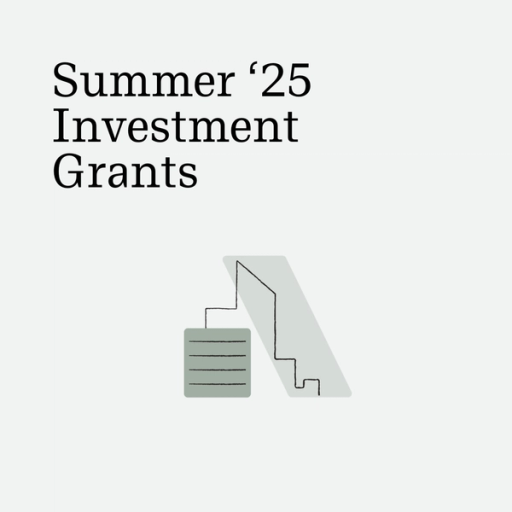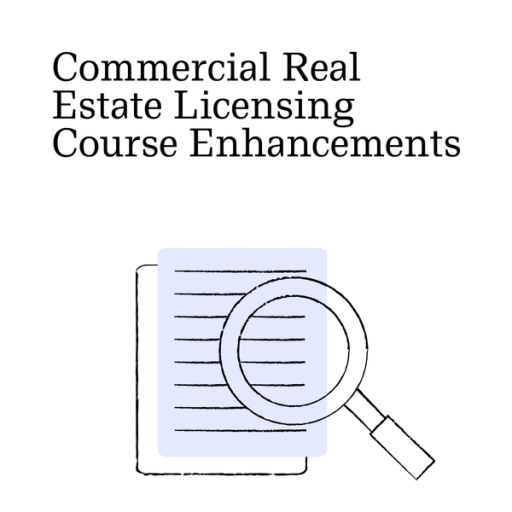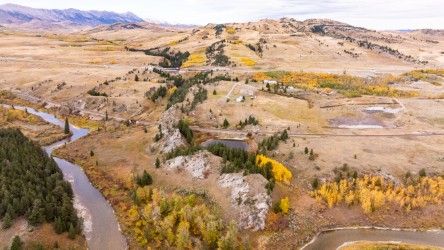July 23, 2025
2025 Summer Investment Grants
By Alberta Real Estate Foundation

In June, the Foundation's Board of Governors met to hear from the applicants to our Investment Grant program and award funds.
We awarded $1,716,275 to eight incredible projects that uplifting the industry and benefitting communities across the province. Check out our latest Investment Grant recipients and learn about their projects below:
Evict Radon 4.0
Organization: University of Calgary, Cumming School of Medicine
Grant amount: $500,000
This three-year project addresses the serious health risk of radon exposure—one of the leading causes of lung cancer in Alberta. The research will focus on measuring individual exposure among high-risk professions such as real estate brokers, home inspectors, HVAC workers, and home-care professionals. In parallel, the team will support stakeholder education on new Alberta Building Code changes that require proactive radon reduction systems in new homes. By combining data collection with targeted outreach, the project aims to reduce radon exposure and lower the incidence of preventable cancers linked to indoor air pollution.
Addressing Energy Poverty in Edmonton's Rental Market
Organization: NorQuest College
Grant amount: $220,000
This project examines the intersection of social equity and energy use, highlighting how energy affordability and accessibility influence quality of life in Edmonton. By assessing the experiences of households facing energy poverty, we aim to identify targeted policy and community-based solutions. Through collaborative research, public engagement, and comparative analysis, the project supports Edmonton’s efforts to build inclusive, resilient, and sustainable communities, ensuring the energy transition leaves no one behind.
Affordable and Sustainable Prefabricated Accessory Dwelling Units in Alberta: Criteria, Zoning Policies, and the Feasibility of Building on Existing Garages
Organization: The University of Alberta
Grant amount: $150,000
Alberta’s recent zoning reforms present a unique opportunity to introduce prefabricated Accessory Dwelling Units (ADUs) as a sustainable and affordable housing solution. This project explores the feasibility of ADUs constructed by mass timber panels (MTPs), assessing zoning regulations, optimal unit dimensions, and logistical challenges such as transportation and installation. By leveraging off-site prefabrication, ADUs can be rapidly deployed, reducing construction time, costs, and material waste. The study will provide key insights into structural feasibility, cost-effectiveness, and policy recommendations to support ADU adoption in urban housing strategies. Findings will be shared through academic publications, industry reports, and stakeholder engagement, contributing to innovation in real estate and urban development across Alberta.
Property Tax Regressivity in Alberta: Policy Solutions to Improve Housing Affordability
Organization: University of Calgary, School of Public Policy
Grant amount: $91,500
This research project investigates the potential regressivity of property taxes in Alberta—whether lower-income homeowners pay a higher share of their income in property taxes than higher-income groups. It will compare Alberta to other provinces and analyze impacts across demographics such as age, family composition, immigrant status, and employment. The study will also evaluate policy options to reduce tax regressivity, aiming to improve housing affordability while considering municipal revenue implications.
The mddl-U Certificate Program
Organizations: University of Calgary, School of Architecture, Planning and Landscape, and mddl
Grant amount: $225,000
The mddl-U Certificate Program is a new online course currently in development through the University of Calgary’s School of Architecture, Planning, and Landscape (SAPL) Continuing Education. Designed to build capacity for middle housing in established communities, the course will provide emerging professionals with the knowledge and tools to navigate the full development process—from site assessment and design to financing and approvals. Building on the success of the in-person mddl School prototype, mddl-U will expand access and empower a new generation of planners, designers, and small-scale developers to deliver middle housing at scale.
Researching Policy Tools and Community Solutions for Housing Affordability in Alberta
Organization: Banff Canmore Foundation
Grant amount: $129,775
The Banff Canmore Foundation is leading a research initiative to explore policy tools—such as covenants, deed restrictions, and fiscal incentives—to improve housing affordability in Alberta’s tourism-based communities. Focusing on Banff, Canmore, and Jasper, the project aims to identify effective, community-driven strategies that are not reliant on government or major employers. The research will assess policy barriers, highlight best practices from similar communities, and develop an advocacy strategy to support policy reform. The ultimate goal is to equip municipalities and nonprofits with actionable tools to increase housing accessibility for local residents.
The City of Edmonton Social Infrastructure Framework Development
Organization: City Of Edmonton - Safe & Health Communities Section
Grant amount: $150,000
The City of Edmonton and Urban Matters CCC Ltd. are developing a Social Infrastructure Framework to guide how parks, libraries, housing, and other community supports are planned and integrated into city development. The project will define social infrastructure, align planning and investment priorities, and create a GIS-based tool to map assets and gaps. The resulting Blueprint will equip real estate professionals, developers, and planners with data-driven insights to support resilient, equitable community development in Edmonton.
Transportation and Land Use Design for Alberta's Wildfire-Prone Communities
Organization: The University of Alberta
Grant amount: $250,000
This University of Alberta research project aims to strengthen wildfire resilience in Alberta’s communities by exploring the intersection of land use and transportation planning. Through a multi-method approach led by engineers and urban planners, the team will develop a conceptual framework, assess existing neighbourhoods, and provide practical recommendations to enhance community safety and protect real estate in wildfire-prone areas. The project focuses on strategies that support both safe evacuation and the long-term viability of built environments.
Explore our Projects page for more Foundation-funded initiatives.
Topic
Contributor

Alberta Real Estate Foundation
The Alberta Real Estate Foundation invests in real estate* policy, research, practices, and education that strengthen Alberta’s communities.
Similar News


